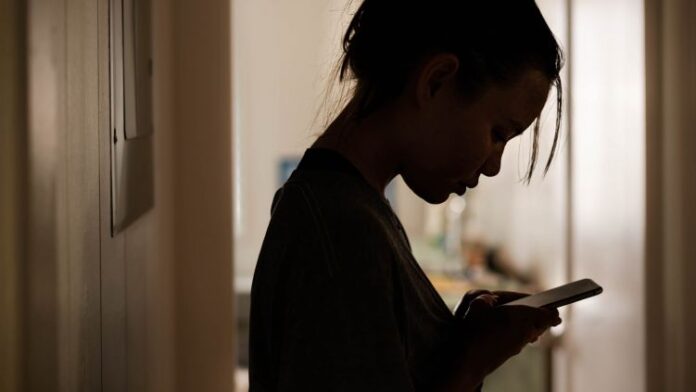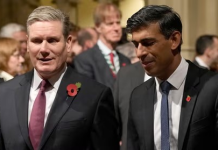A groundbreaking report into online violence against women journalists is calling for urgent action by UK policymakers to protect lives, livelihoods and press freedom.
The report is the result of a three-year study covering 15 countries and is the most geographically, linguistically, and ethnically diverse scoping of online violence against women journalists to date.
The study, commisioned by UNESCO, found that online violence against women journalists in the UK is frequently associated with populist politics, polarising political debates and that the pandemic has worsened the situation. Alarmingly, the report also found a strong link between online violence and offline attacks in the UK, especially with regard to stalking.
The study draws on the experiences of nearly 1,100 journalists, two big data case studies examining 2.5 million social media posts directed at journalist and Nobel Laureate Maria Ressa (The Philippines) and multi award-winning investigative journalist Carole Cadwalladr (UK), along with detailed individual country case studies.
Nearly three quarters of the women journalists surveyed said they had experienced online violence in the course of their work. Threats of physical violence, including death threats, were identified by 25 per cent of the women survey respondents, and sexual violence was identified by 18 per cent.
Thirteen per cent described threats of violence against those close to them, including children and infants, as features of attacks.
Fifteen per cent reported experiencing image-based abuse, such as manipulated photos or videos, stolen images and explicit images shared publicly without permission. 29 survey participants said they had been victims of ‘deep fakes’, such as manipulated videos, often associated with fake porn, designed to damage reputations.
Almost half – 48 per cent – of the women journalists surveyed reported being harassed with unwanted private social media messages, highlighting that much online violence targeting women journalists occurs in the shadows of the internet, away from public view. Several of the interviewees also experienced offline stalking which had begun online via direct messaging.
The study was led by Dr. Julie Posetti, ICFJ’s Global Director of Research and a senior researcher at the Centre for the Freedom of the Media (CFOM) at the University of Sheffield. It also draws on research by Dr Diana Maynard and Professor Kalina Bontcheva from the University of Sheffield’s Department of Computer Science and CFOM.
The book-length study is calling for governments, Big Tech, the news industry, legal and judicial actors and civil society to do more to tackle what is described as a crisis of online violence towards women journalists. It was edited by Dr. Posetti and Nabeelah Shabbir.
The researchers say the report’s findings should serve as a wake up call for UK policymakers as the draft Online Safety Bill – a proposed piece of legislation designed to regulate the tech sector, safeguard people online and protect freedom of expression – is delayed once again with no known date for when it will return to the House of Commons.
The UK and Northern Ireland were one of 15 in-depth global case studies in the report, drawing on extensive desk research and in-depth interviews with 22 journalists and experts.
The study found that online violence against women journalists in the UK is frequently associated with populist politics, and polarising political debates – such as Brexit.
The pandemic has worsened the situation for women journalists with digital conspiracy networks targeting reporters, and one member of the Conservative government at the time attacking two journalists for their critical reporting of responses to Covid-19.
One interviewee for the report, BBC disinformation reporter Marianna Spring, documented her own experience of online violence in a documentary broadcast in 2021.
In partnership with ICFJ researchers, the University of Sheffield computer scientists conducted a big data analysis of approximately 75,000 tweets directed at Spring from March to August 2021 and found more than half – 55 per cent – of the abuse was designed to discredit Spring as a journalist and undermine her public interest journalism, while 27 per cent was sexist and misogynistic (the remainder was classified as generally abusive).
A strong link between online and offline violence in the UK has been revealed by the study. The correlation of online violence and offline attacks against women journalists is significant, especially with regard to stalking.
The report documented four cases of physical stalking associated with online harassment. In three cases, the perpetrators harassed the journalists at their newspapers, and in the fourth case, a stalker left a message for a BBC journalist Marianna Spring on the noticeboard at the train station she uses to commute to work.
Northern Irish journalists covering sectarian paramilitary activity and organised crime are particularly vulnerable to offline attacks seeded online, according to the report.
Three cases of online-offline violence targeting women journalists in Belfast surfaced during the course of the research. The case of one interviewee, Sunday World’s Patricia Devlin, is emblematic. She received credible death threats online which were accompanied by graffiti on city walls featuring her name next to the crosshairs of a gun, and threats of sexual violence were also made against her children.
For the rest of the UK, the situation has become so serious that the UK’s biggest commercial news publisher – Reach, PLC – created the position of Online Safety Editor in mid 2021 and many journalists featured in the research reported that they have increased their physical security, highlighting their sense of vulnerability and awareness of the potential of real world consequences of digital attacks.
Dr Julie Posetti said: “Online violence towards women journalists aids and abets impunity for crimes against journalists, and it must be tackled urgently. This requires political actors who instigate and amplify online violence to be restrained and penalised.”
“It also demands that the platforms be held accountable for their role as vectors for online violence, through freedom of expression-respecting regulation by the states which claim that they want to tackle issue of impunity and protect journalists, including the UK”
“This is even more urgent in the context of Twitter’s recent takeover by a billionaire who has not signalled that he understands that protecting users from hate speech enables freedom of expression.”
Professor Kalina Bontcheva, said: “Our report has found that we are now at a crisis point in the level of violence being directed towards women journalists. The vast majority who took part in the study had suffered from online violence, so UK policymakers need to take urgent action now in order to protect the lives of those who are doing such an important job in society.
“A swift passing of the draft Online Safety Bill is of utmost importance, not only on journalist safety grounds, but also to limit exposure to online harms for children, minorities, public figures, and all UK citizens. Its current delay, however, is an opportunity to include the key recommendations arising from our research to help keep journalists safe.”







